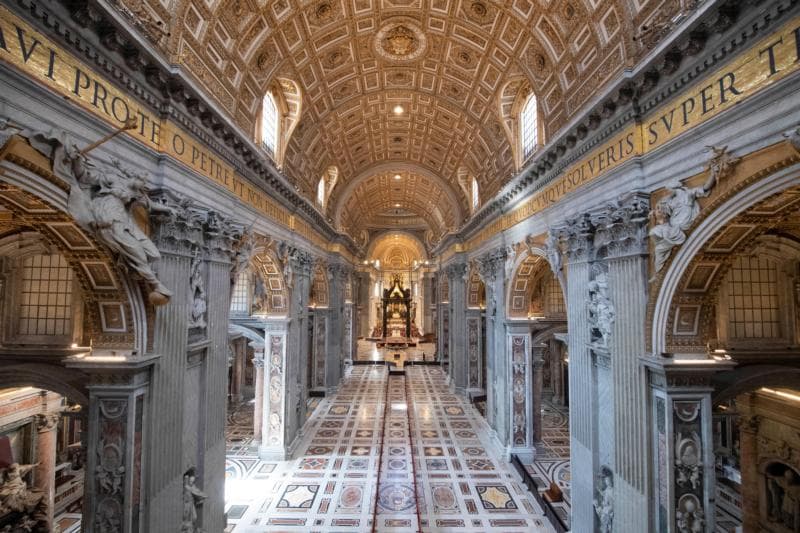WASHINGTON, D.C. — For the upcoming PBS special “Inside the Vatican,” a crew from the BBC spent a year going inside talking with clerics and laity doing jobs of importance — including the gardeners and the “pietrini,” the crew that keeps St. Peter’s Basilica spotless.
But before that crew could begin its work, the production team spent two years lobbying Vatican officials for access.
“All documentary are underpinned by trust, and it’s about building trust,” Nick Kent, the documentary’s executive producer told Catholic News Service in a March 10 phone interview from London.
“The funny thing about the Vatican: There isn’t any one person in charge of access to the Vatican. There are little pockets of control, and you have to build up a kind of critical mass of support by collaborating with people and getting close to them,” Kent said. “The key thing is we took our time to do it.” He added, “I knew from the beginning if we took the typical approach to it, we would never get to do it.”
Once inside, “the challenge was trying to convince people inside the Vatican that we don’t have an agenda. A lot of journalists inside the Vatican have an agenda,” Kent said, whereas the documentary production team was interested “more about the nature of faith.” “Inside the Vatican” is scheduled to air Tuesday, April 28, 9-11 p.m. EDT on PBS. The documentary aired on BBC before Christmas.
The film crew spent about 40 days filming in the Vatican and environs, according to Kent. “It’s more like making a natural history documentary more than journalism,” he said. “The joy of making a documentary is you never know how it’s going to turn out.”
Still, during 2018, when the filming was taking place, the church continued to make much news. “News is more of an immediate smash-and-grab operation, while a documentary is more of an intricately planned heist,” Kent said. “People are surprised when they see you for the first time, then three months later you’re still hanging around: ‘What are you doing?'”
Interview subjects were hardly all curial functionaries, but also the workers needed to making a city-state run effectively. “It was a real pleasure to give those people voice,” Kent said. “Invariably, they have one thing in common — which is that sense of Catholic vocation,” adding, “You have no idea when you start out” who the documentary’s most important characters will be. “They’re not always the most important people in the organization.”
Anyone who has visited the Vatican over the past decade will see how ubiquitous the cellphone-as-camera culture is in the Eternal City. “It’s massively pervasive in terms of the pilgrims and visitors to the Vatican,” Kent noted. “Pope Francis jokes about that in the film, posing for a selfie with some young pilgrims.”
Another change over time is the increasing presence of women at the Vatican. “There’s always been a very strong presence of women in the Catholic Church. I think giving them voice in the Vatican, that is changing.” Kent told CNS. “Our director Silvia (Sacco), I think that was an asset in terms of winning trust an getting people to open up.”
Kent signaled another change shown in the documentary “One of my favorite scenes is Archbishop (Joseph) Coutts (of Karachi, Pakistan), is being made a cardinal. He’s going to get his outfit from the tailor. He’s (the tailor) claiming under Francis, the beautiful wools and silks he used to make are no more.”
“But Coutts, as someone who’s been appointed a cardinal by Francis is someone who absolutely couldn’t care less about the quality of the material. In fact, he’s embarrassed by it,” Kent said. “It’s actually quite a profound insight into what Francis is doing.”
Kent was mum on what extras might be found in the DVD of “Inside the Vatican,” but he said, “You could do a whole series of the gardens of the Vatican, and the approach the gardeners take to it. The Vatican is endlessly fascinating.”
Crux is dedicated to smart, wired and independent reporting on the Vatican and worldwide Catholic Church. That kind of reporting doesn’t come cheap, and we need your support. You can help Crux by giving a small amount monthly, or with a onetime gift. Please remember, Crux is a for-profit organization, so contributions are not tax-deductible.













